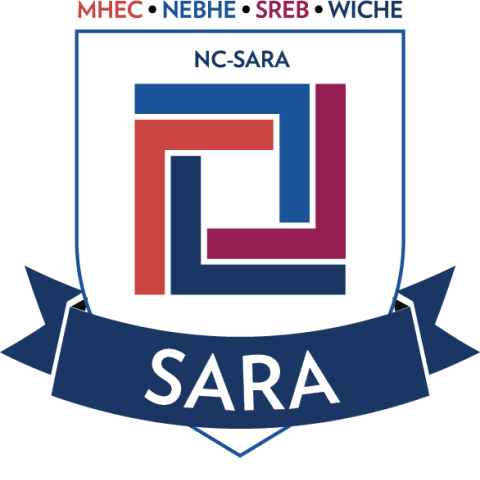National Council for State Authorization Reciprocity Agreements
State Authorization
Howard University has been approved to participate in the National Council for State Authorization Reciprocity Agreements (NC-SARA).
Howard University’s authorization to admit online students in many states is pursuant to its membership in the National Council for State Authorization Reciprocity Agreements (NC-SARA). Please visit the NC-SARA website for a list of current NC-SARA member states.
As a member of the National Council for State Authorization Reciprocity Agreement (NC-SARA), the university has the opportunity to deliver our distance education programs to as many learners as possible. Through our NC-SARA membership, we have obtained authorization to operate in a majority of U.S. states. In states where NC-SARA does not apply, please contact the specific program for which you are interested prior to applying and enrolling to inquire if an opportunity exists for students to enroll from that state.
Professional Licensure
NC-SARA has no effect on state professional licensing requirements. Programs leading to professional licenses often have additional requirements beyond basic authorization. If you are planning on taking a course or completing a program that leads to a professional license, please contact the school or college offering the course for information related to licensure in your state prior to applying and enrolling.
The Professional Licensure Directory
NC-SARA also has created and maintained the Professional Licensure Directory, which provides contact information for five programs that lead to a professional license. These programs have the most enrollments per the data provided by NC-SARA participating institutions.
- Counseling
- Nursing
- Psychology
- Social work
- Teacher Education
This resource does not house regulations or requirements; it is exclusively general contact information. Students may find this contact information helpful in their research on state licensure requirements in their locations. NC-SARA updates the contact information twice annually.
Student Complaint Process
Every student deserves a positive educational experience. Sometimes a student’s experience may not be what they anticipate, and the student may have a concern or a complaint.
SARA consumer protection provisions require the institution’s home state, through its SARA State Portal Entity, to investigate and resolve allegations of dishonest or fraudulent activity by the state’s SARA-participating institutions, including the provision of false or misleading information.
A student has the right to lodge a complaint or grievance. The institution should ensure that all concerns and complaints of students are addressed fairly and are resolved promptly. Student complaints relating to consumer protection laws offered under the terms and conditions of the State Authorization Reciprocity Agreement (SARA), must first be filed with the institution to seek resolution.
The student should begin the complaint process with the institution and if resolution is not found, the student would contact the institution’s home state SARA Portal Entity. If you are a student and have a concern or complaint involving one of Howard University's online programs, please email dol@howard.edu or keanna.skipwith@howard.edu.
Howard University's Emergency Response Statement
Academic Continuity is the preservation of teaching and learning. Crises in higher education impact different aspects of the university and warrant institutional responses in a variety of ways, depending on the type, scale, and level of crisis. Emergency preparedness is a systemic way to deter or avert crises or manage those that do occur. Sound planning can help to avert potential crises or result in more successful outcomes. Please access this link for
. In addition to this statement, you may also access the
NC-SARA maintains a directory of SARA State Portal Entities.

